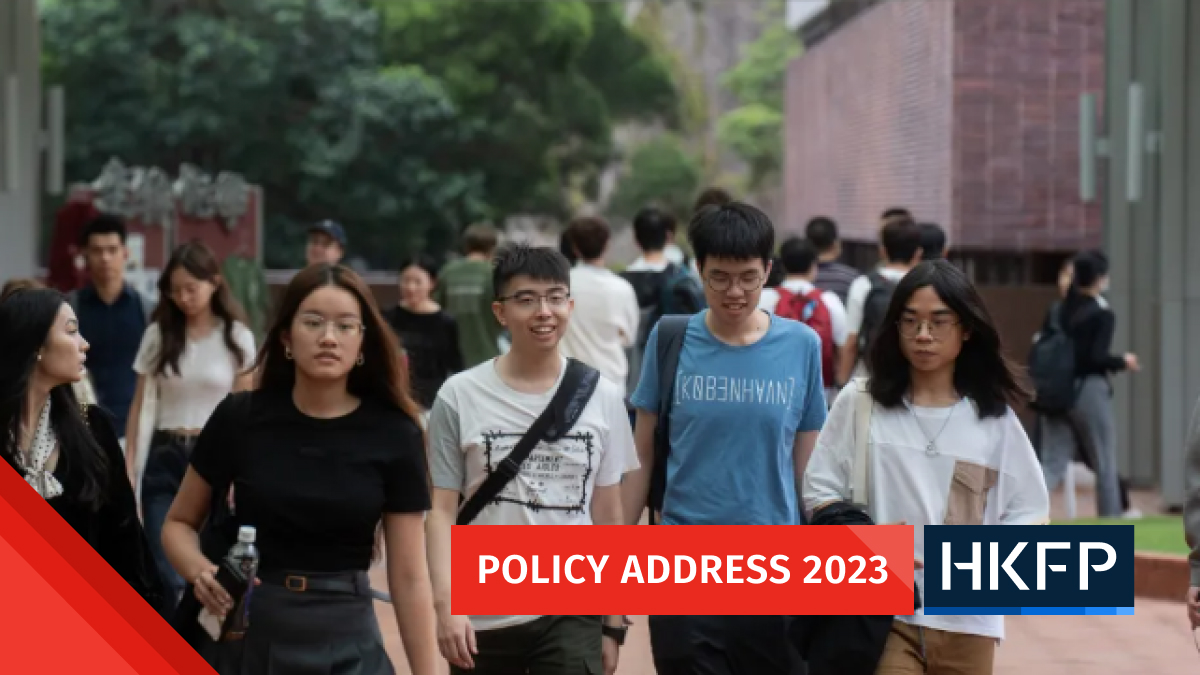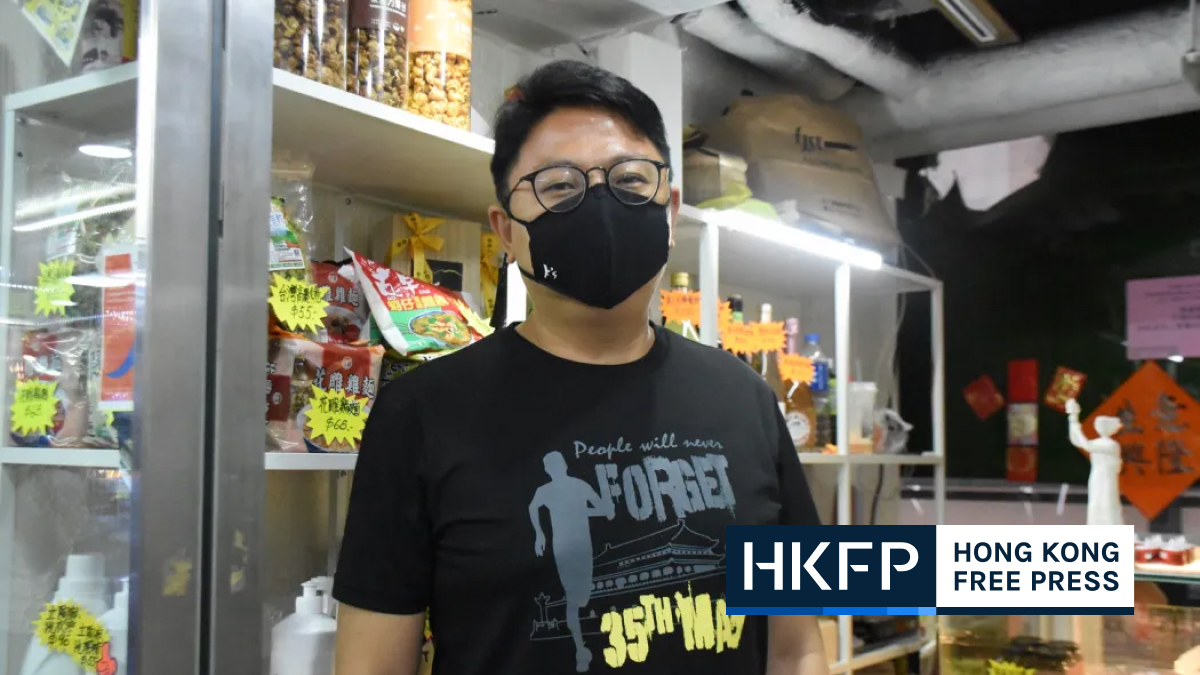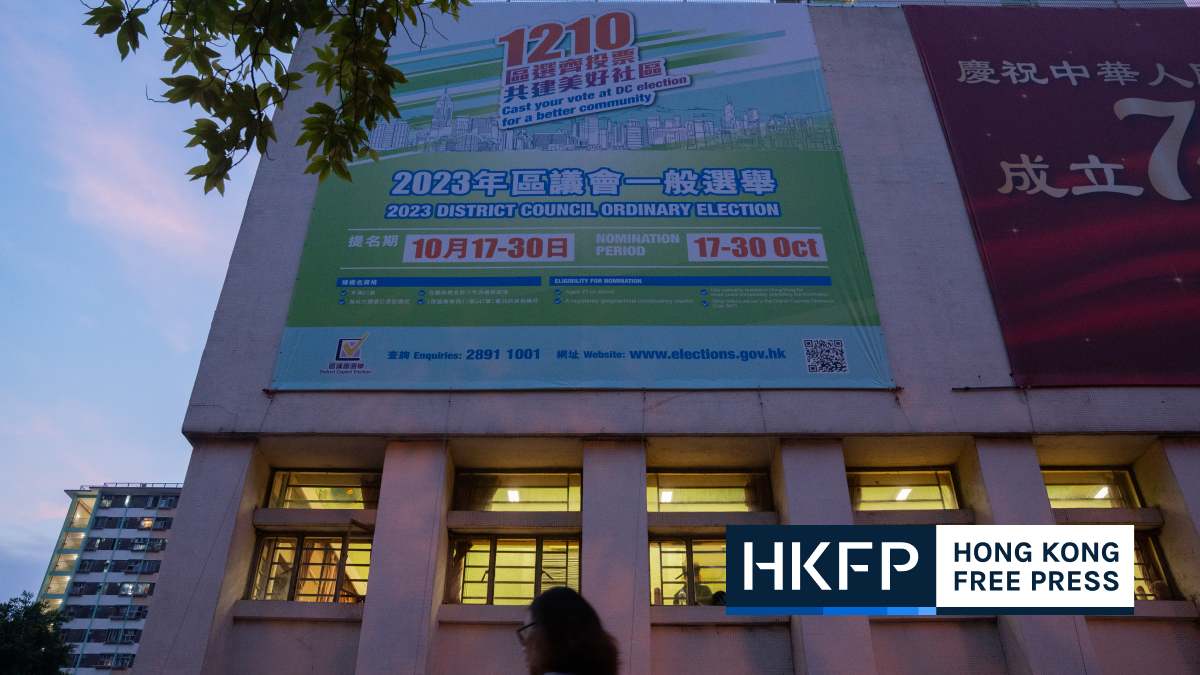On May 8, Election Committee members will cast their ballots to determine – from one sole candidate – who leads the city for the next five years as Hong Kong holds its first small-circle leadership election since last year’s electoral overhaul.
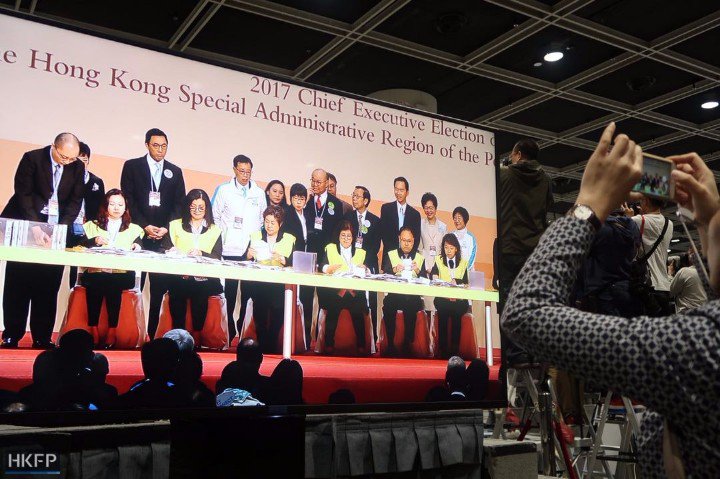
While the majority of electoral changes imposed by Beijing in March 2021 were related to the city’s Legislative Council election, the overhaul to ensure that only “patriots” govern Hong Kong also had implications for the small-circle leadership race.
How do candidates secure a bid?
To run in the chief executive race, a candidate must secure at least 188 nominations from the Election Committee, the same group of people that will then choose the city’s next leader.
The electoral overhaul, which the government said would ensure the city’s stability and prosperity, expanded the capacity of the Election Committee from 1,200 to 1,500, although there are only 1,462 members. This is due to the practice of concurrent positions, where the same person sometimes holds more than one allocated position.
All but one of the 1,462 members are from the pro-establishment camp. A new sector was added in the overhaul to include Hong Kong delegates to China’s top decision-making bodies.
Apart from having to secure enough nominations, candidates must be verified by the Candidate Eligibility Review Committee, which includes top government officials and non-official members.
Candidates might also have to be vetted by the National Security Department of the police force, with the Committee on National Security deciding whether a candidate meets “legal requirements and conditions for upholding the Basic Law and bearing allegiance to the HKSAR of the People’s Republic of China.”
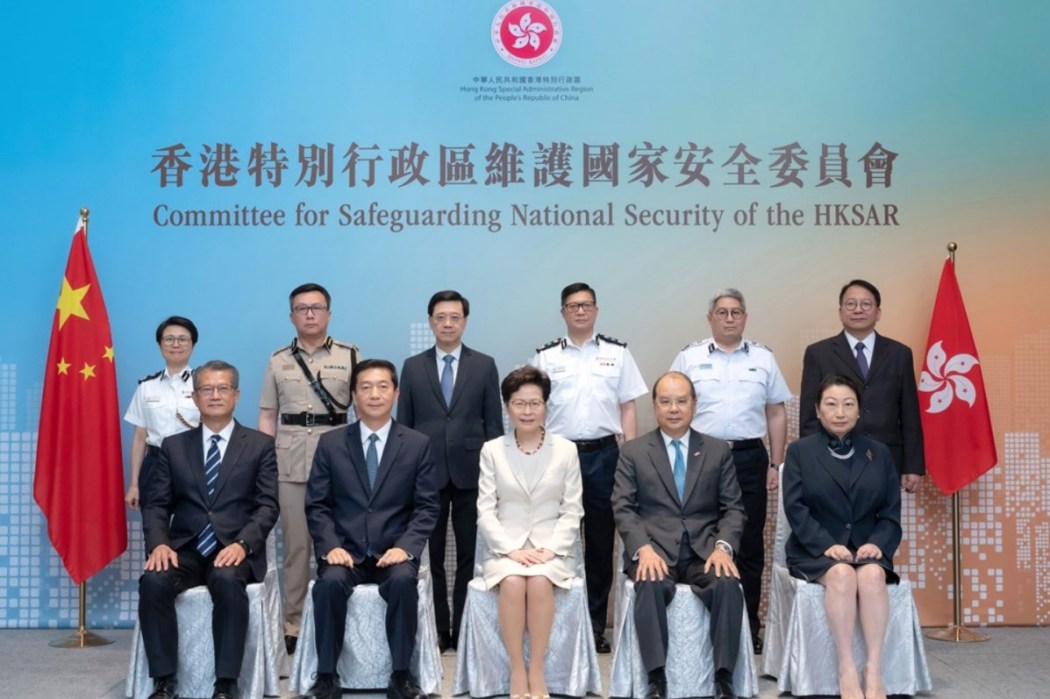
If the candidate is deemed not to meet the requirements, the committee will submit its advice to the Candidate Eligibility Review Committee, which will decide whether to validate that candidacy. Decisions made by the review committee based on advice given by the national security committee cannot be challenged legally.
John Lee, former chief secretary and the only candidate running in the May 8 election, used to chair the Candidate Eligibility Review Committee, and was a member of the Committee on National Security when he was secretary for security.
After securing enough nominations – Lee landed 786 – and having their candidacy verified, contenders must secure over 750 votes from the Election Committee to win the race.
What happens when there is only one candidate?
There have been two uncontested chief executive races in the past. The city’s first chief executive, Tung Chee-hwa, was automatically re-elected when he ran unopposed in 2002. His successor, Donald Tsang, was also elected automatically after he became the sole candidate in 2005.

Automatic election in uncontested leadership races was abolished in 2006 after the Legislative Council passed an amendment requiring a vote to be carried out.
Even in a one-horse race, a candidate must obtain more than 750 votes from the Election Committee to become chief executive.
Who are the members of the Election Committee?
The Election Committee is comprised of five sectors, including industry representatives, and members of “relevant national organisations.” Some seats are also filled by appointment, and by ex-officio members.
All but one are from the pro-Beijing camp. The remaining member, founder of the centrist party Third Side Tik Chi-yuen, has said he is “non-pro-establishment.”
There are no representatives in the Election Committee from the pro-democracy camp. The city’s most prominent opposition figures, including former lawmakers and leaders of activist groups, have either been detained, are in self-exile, or have left politics following the implementation of the national security law in June 2020.
Universal suffrage
Article 45 of the Basic Law states that “the method for selecting the Chief Executive shall be specified in the light of the actual situation in the Hong Kong Special Administrative Region and in accordance with the principle of gradual and orderly progress.”

“The ultimate aim is the selection of the Chief Executive by universal suffrage upon nomination by a broadly representative nominating committee in accordance with democratic procedures,” the article reads.
In reality, previous attempts to revamp electoral systems have failed, with some sparking mass protests.
Tsang first tabled a political reform plan in 2005 to introduce a list of changes, including the expansion of the Election Committee. The proposal was voted down in the legislature.
In his second term as chief executive, Tsang again proposed expanding the Election Committee, as well as increasing the number of seats in the legislature. The proposal did not include allowing residents to vote for their leader directly.
The proposal was eventually passed with a modification suggested by the Democratic Party, which caused controversies among pan-democrats, with the League of Social Democrats and the Civic Party opposing the proposal.

Public consultation for further electoral reform began in December 2013, led by then-chief secretary Carrie Lam. Suggestions from pro-democracy coalition the Alliance for True Democracy for “civic nominations” – that is allowing candidates who collected a certain number of nominations from the public to run – were rejected by the government.
In August 2014, the Standing Committee of the National People’s Congress (NPCSC) announced a decision on election methods. Often called the “8.31 decision,” it established the framework for the leadership race, and dictated that chief executive hopefuls must first secure nominations from a committee to become a candidate.
This decision sparked the Umbrella Movement – a 79-day long pro-democracy civil disobedience campaign originally conceived as Occupy Central. Thousands occupied roads around the legislature and in two other key districts following a student sit-in. Leading figures of the largely peaceful movement were jailed in the years following the police clearance.
The proposal was voted down in 2015.

Following last year’s electoral overhaul, Chief Executive Carrie Lam said in December that as long as Hong Kong continued on the right track, she believed that the target of selecting the chief executive by universal suffrage “will be realised.”
“Actually, ‘electing the chief executive by one person one vote,’ was one put on the table in front of us all, it was achievable…but who voted down this target of ‘one person one vote’?” said Lam.
“About moving forward, I am confident…now that we have this widely-representative Election Committee formed by 1,500 people from five major sectors through an improved electoral system, to some extent this fits the framework set out by the NPCSC decision on August 31, 2014,” said Lam.
“That’s why as long as we continue to walk down this right track, after the new Legislative Council takes office, and shows that there can be constructive interaction between the executive and legislature performing meaningful deeds for Hong Kong citizens, I believe that selecting the chief executive by universal suffrage will be realised, and it might not take a long time to realise [it].”
Support HKFP | Policies & Ethics | Error/typo? | Contact Us | Newsletter | Transparency & Annual Report | Apps
Help safeguard press freedom & keep HKFP free for all readers by supporting our team

LATEST FROM HKFP
HKFP has an impartial stance, transparent funding, and balanced coverage guided by an Ethics Code and Corrections Policy.
Support press freedom & help us surpass 1,000 monthly Patrons: 100% independent, governed by an ethics code & not-for-profit.


